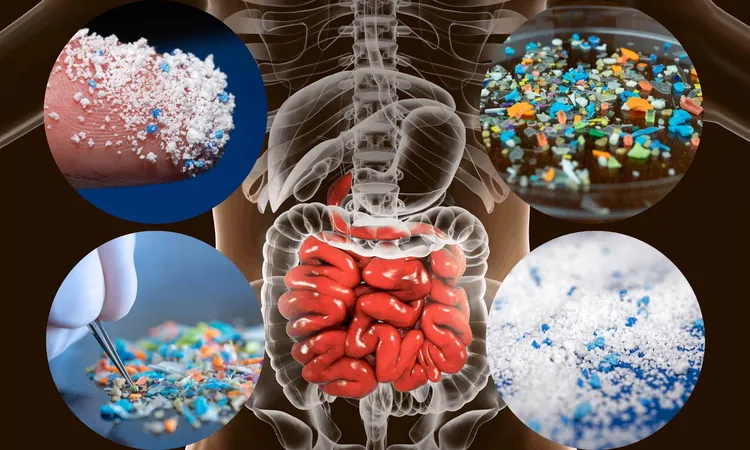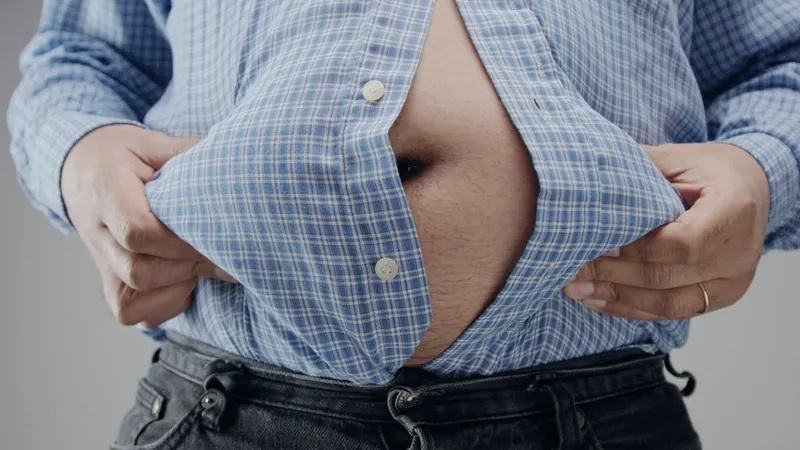
Shocking Discovery: Tiny Plastic Particles Found Embedded in Human Bodies!
2024-12-24
Author: Kai
Shocking Discovery: Tiny Plastic Particles Found Embedded in Human Bodies!
In a startling revelation, recent studies have uncovered that tiny plastic particles, known as micro- and nanoplastics (MNPs), are not just polluting our environment but are also infiltrating human bodies. From blood to lung tissue, these minuscule fragments, often smaller than a grain of sand, are being detected where they were once thought to be absent.
A Hidden Hazard with Serious Health Implications
This alarming discovery raises pressing questions about the long-term health impacts of these synthetic invaders, which have been circulating in our environment for decades. Research led by Dr. Yating Luo and his team from East China Normal University has found that MNPs are not merely passing through our systems; they are embedding themselves in critical tissues and potentially causing significant health problems.
Studies have linked these particles to various health conditions, including cardiovascular diseases such as atherosclerosis, bowel disorders like inflammatory bowel disease, and even reproductive health issues. Alarmingly, some research suggests a possible connection between MNPs and cancers, including cervical cancer.
How Do They Get Inside Us?
Laboratory experiments have demonstrated that microplastics can traverse the body’s natural barriers with alarming ease, including the blood-brain barrier. This could lead to neurological problems as these particles might interfere with nerve cell functions, potentially playing a role in degenerative brain conditions.
Global Scope of the Plastic Problem
The plastic pollution crisis isn't confined to visible trash in oceans or landfills; tiny plastic fragments are present even in the most remote areas of the world, showing a pervasive spread. Humans ingest these harmful particles through contaminated food and water, inhale them in the air, and even absorb them through the skin.
Dr. Tamara Galloway, a microplastics expert, emphasized the urgency of this matter, stating that this research indicates that microplastics are now a widespread issue across the globe, affecting diverse populations everywhere.
Why You Should Be Alarmed
Everyday items like plastic containers, packaging, and synthetic clothing contribute to the whirling storm of microplastic pollution. As these products degrade, they release harmful fibers that end up in our food supply through aquatic life. The situation is further exacerbated by waste management practices, including open burning, which release more plastic particles and pose risks to communities nearby.
The global response to this crisis must intensify. Authorities are facing increased pressure to impose stricter regulations on plastic production and to promote sustainable alternatives to single-use plastics. Additionally, public health organizations may need to revise their guidelines to consider MNPs as a potential health threat on par with other established environmental hazards.
What's Next?
Moving forward, an extensive assessment of the situation is necessary. Researchers are advocating for long-term studies to quantify how much plastic accumulates in human tissues and its effects on cellular and organ health. Advances in technology are on the horizon, aimed at tracking these particles and understanding their behavior within the human body.
United efforts to educate the public about the risks associated with plastic exposure can drive demand for better products and policy changes. Individuals can reduce their exposure to microplastics by avoiding products that shed plastic fibers and supporting environmentally responsible brands.
Join the Fight Against Plastic Pollution!
The growing body of evidence surrounding microplastics in human bodies calls for urgent attention and action. Awareness is the first step toward change. If we prioritize research, funding, and stricter regulations, we can mitigate this emerging health threat.
Stay informed, advocate for your health, and together let’s push for a plastic-free future!
Feeling concerned? Join our community to receive updates on the latest research and tips for reducing plastic exposure in your daily life!


 Brasil (PT)
Brasil (PT)
 Canada (EN)
Canada (EN)
 Chile (ES)
Chile (ES)
 Česko (CS)
Česko (CS)
 대한민국 (KO)
대한민국 (KO)
 España (ES)
España (ES)
 France (FR)
France (FR)
 Hong Kong (EN)
Hong Kong (EN)
 Italia (IT)
Italia (IT)
 日本 (JA)
日本 (JA)
 Magyarország (HU)
Magyarország (HU)
 Norge (NO)
Norge (NO)
 Polska (PL)
Polska (PL)
 Schweiz (DE)
Schweiz (DE)
 Singapore (EN)
Singapore (EN)
 Sverige (SV)
Sverige (SV)
 Suomi (FI)
Suomi (FI)
 Türkiye (TR)
Türkiye (TR)
 الإمارات العربية المتحدة (AR)
الإمارات العربية المتحدة (AR)